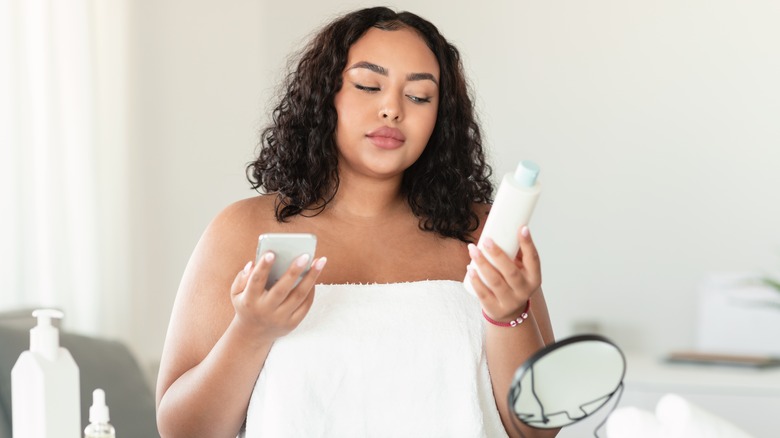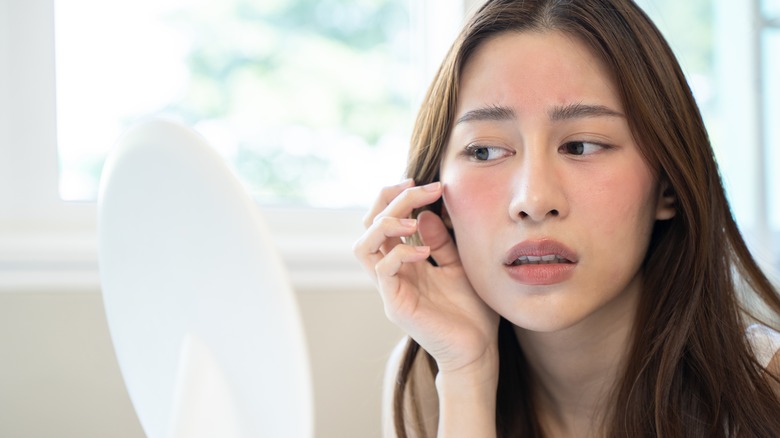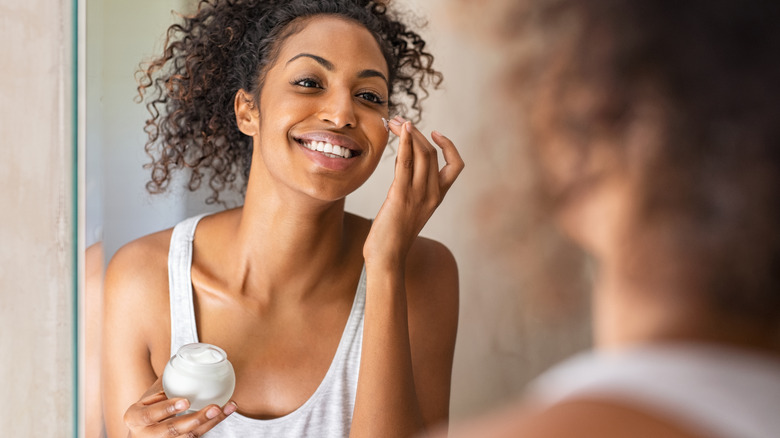Is Alcohol An Ingredient You Should Avoid In Skincare Products?
We may receive a commission on purchases made from links.
The question of whether or not alcohol should be a component of the cosmetic industry is stirring up a storm. Most of us would not put alcohol-based hand sanitizer on our face, while others suggest you should be putting vodka on your skin. So, why do our cleaners and serums have this controversial compound in common?
You might notice a product has a shiny "alcohol-free" label on the packaging, but the ingredients still include something listed as cetyl, stearyl, cetearyl, or lanolin alcohol. As if building a skincare routine was not complicated enough, vetting product ingredients is causing our brains to ache.
Turns out there are a variety of alcohols, each with distinct effects. Some have tremendous skincare benefits, while others should be as far away from your face as possible. Learn which ones are safe and which you should avoid so you don't fall short of your skincare goals.
It should not be a main ingredient in your skincare
Not all alcohol is detrimental to the skin, but the ones that are do serious damage. If you read the ingredients label for any of your skincare products and see SD alcohol, denatured alcohol, isopropyl alcohol, benzyl alcohol, or methanol at the top of the list, it is a red flag. These alcohols are too harsh for the skin and actually age you. As a primary ingredient, this compound depletes your skin's moisture, ruins the skin's barrier, and weakens its rejuvenating properties. That is the opposite of the hydrating, strengthening, and anti-aging effects you want from a beauty regime.
However, don't throw away your serum just yet. Sometimes these compounds are present in products to help your skin absorb other active ingredients better. If this is the case, these alcohols are typically featured at the end of the ingredients list. The amount won't be enough to harm the skin, and the concentration should be less than one percent.
Not all alcohol is a skincare nightmare
Fatty alcohols used in skincare fall into the safe category. Cetyl, stearyl, cetearyl, and lanolin alcohol are compounds sourced from fat and wax. These derivatives act as emollients and emulsifiers. Dermatopathologist Gretchen Frieling, MD, told Everyday Health, "Because of their ability to lock moisture into the skin and form a protective barrier that water can't penetrate, products with these ingredients work best for dehydrated skin." Now that's what you want from your beauty regime.
Even with the moisturizing benefits of fatty alcohols, knowing your skin type will help you determine which ingredients are right for you. These helpful alcohols can clog oily skin or cause breakouts, while those with sensitive skin might want to stay away from alcohol altogether. They can potentially be irritating, particularly with skin issues like eczema. Keep in mind your skin type can change.
You can use sites like INCI Decoder or the Beautypedia Ingredient Checker from Paula's Choice to understand what is lurking in your beauty products and if it is safe for your skin.


